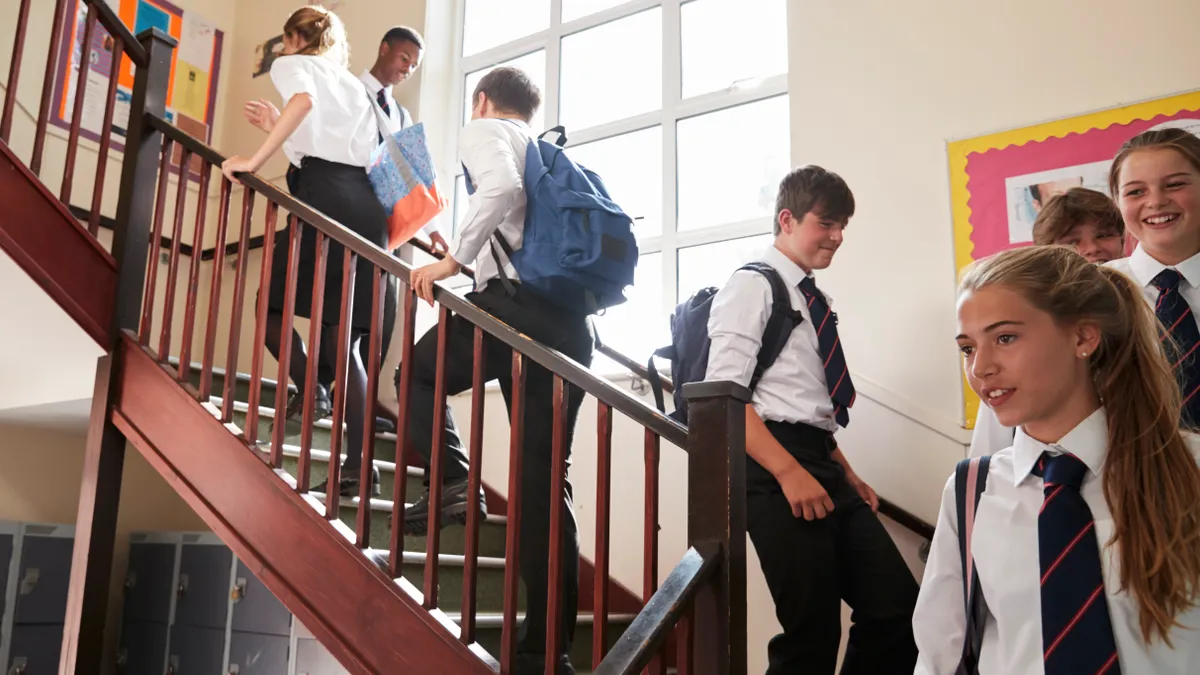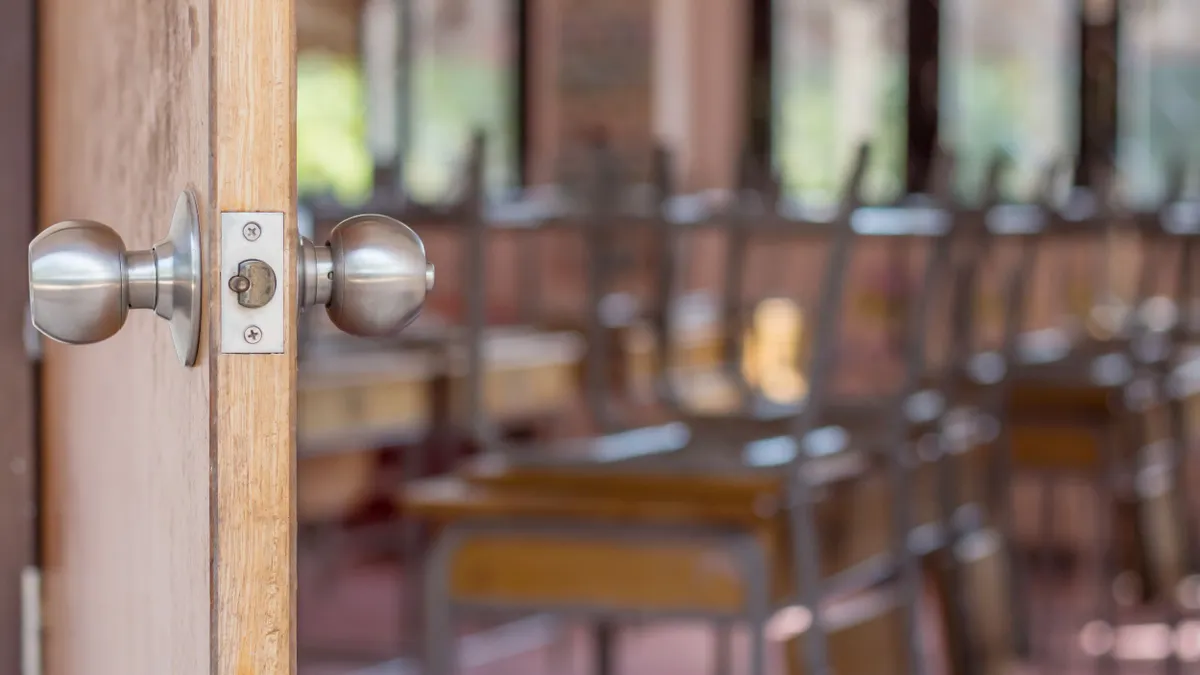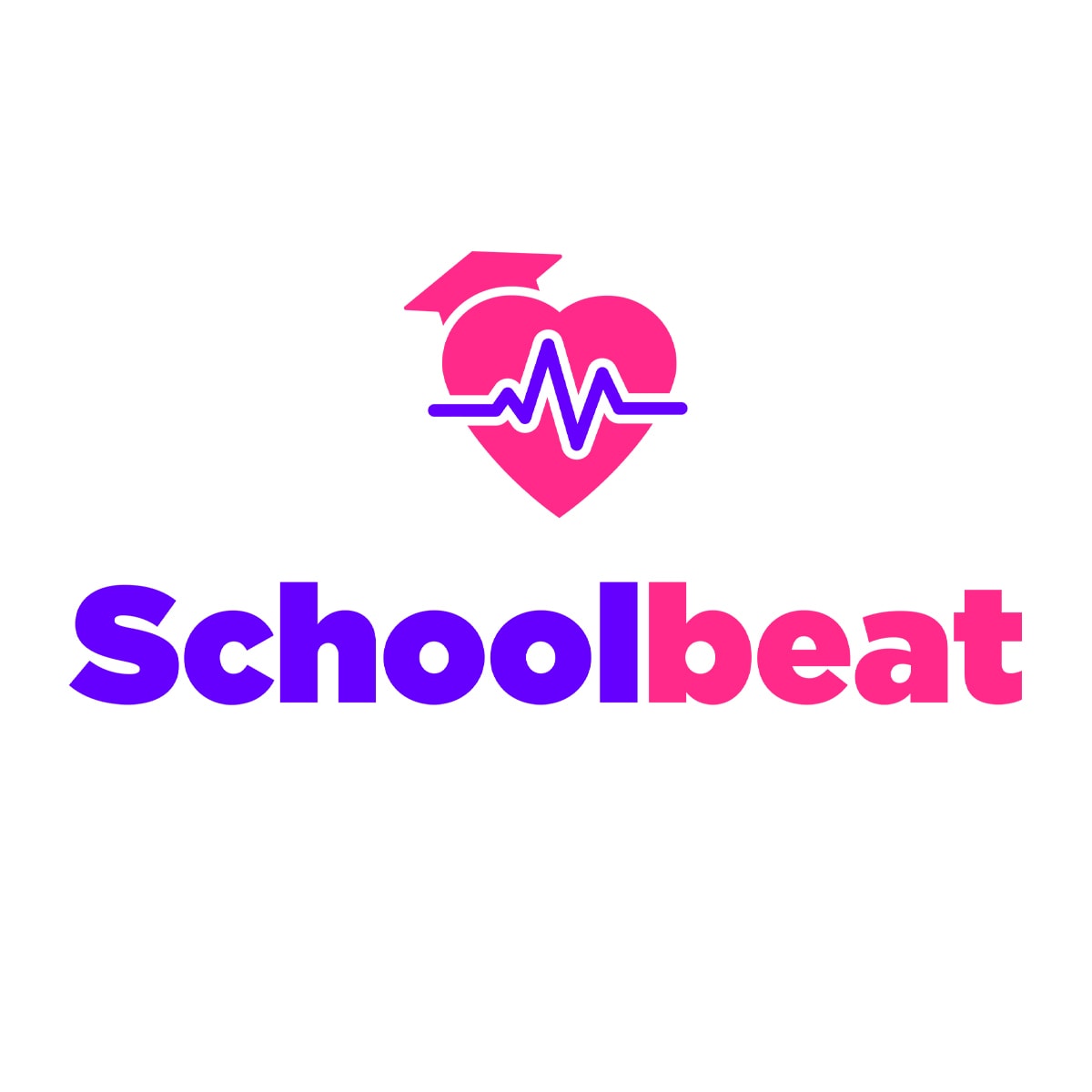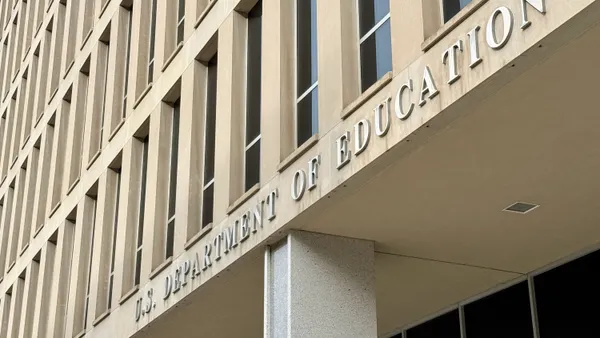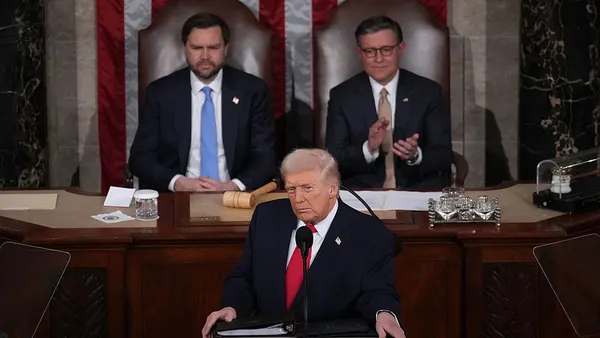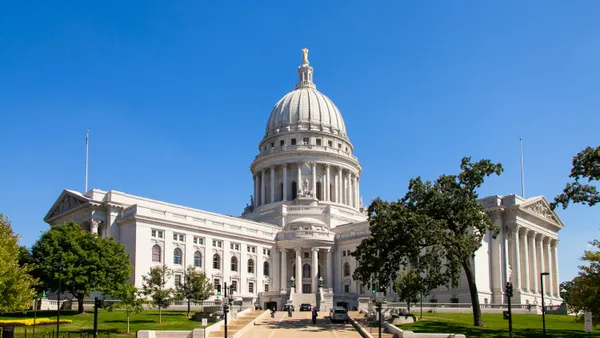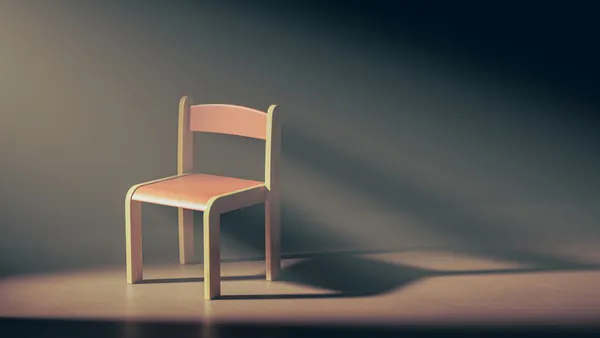Dive Brief:
- Private school enrollment is continuing to grow since the COVID-19 pandemic, according to a survey released last month by the Cato Institute’s Center for Educational Freedom. Between the 2023-24 and 2024-25 school years, 40% of private schools reported an enrollment increase, the study found.
- Some 32% of private schools saw enrollment decrease and 28% reported no change, the Cato Institute said. Among schools with rising enrollment, 69% attribute the growth to “a values alignment between the school and parents.” Other top reasons cited include a better academic experience (44%) and parents’ religious beliefs (43%).
- Though private schools have reported steady enrollment increases since the pandemic, the momentum appears to be slowing down, Cato said. The proportion of schools most recently reporting growth dropped by 15 percentage points from a peak of 55% between the 2021-22 and 2022-23 school years.
Dive Insight:
The slowing growth in private school enrollment over the past four years indicates the “COVID-19 increase is almost over” or that other factors “driving net private school enrollment increases are waning,” according to the Cato Institute, a libertarian think tank and research organization.
At the same time, enrollment has still continued to rise, fueled by “disputes over values” such as gender identity, religion or access to books touching on sex, race or American history, said the Cato Institute. A combination of pandemic frustrations and conflicts over certain values in public schools seem to be driving a surge in school choice programs, which could also be spurring be private school enrollment, the report added.
Private schools that reported a decrease in enrollment between the 2023-24 and 2024-25 school years were most likely to attribute the dip to financial issues (48%), competition (47%) and family demographics (29%).
Private schools in the South saw the largest average enrollment increase, followed by those in the Midwest and then the West, the report found. The Northeast was the only region to show decreased average enrollment.
Over 880 private schools responded to the Cato Institute's survey conducted between October and November 2024. About a third of the responding schools were nonsectarian, with the remaining having religious affiliations.
Another recent study points to a lingering negative impact from the pandemic on public school enrollment.
Education Next, in analyzing K-12 enrollment in Massachusetts, found sustained shifts from public schools to nonpublic alternatives in the past five years. The state’s enrollment fell by 4.2% at public schools and 2.6% at private schools, while homeschooling jumped 51%. Though private school enrollment dropped, it still performed much better than researchers expected as they initially predicted a 16% drop in that time frame.
The Education Next researchers also wrote that their findings in Massachusetts could reflect a broader pattern given the state’s 2024 data closely resembles national enrollment trends from 2023.
Meanwhile, as researchers examine the lasting impacts from COVID, a new federal private school choice program is likely to add mounting pressure on the traditional public school model, which relies on student enrollment for funding. On top of that, states are increasingly offering their own universal private school choice programs.


